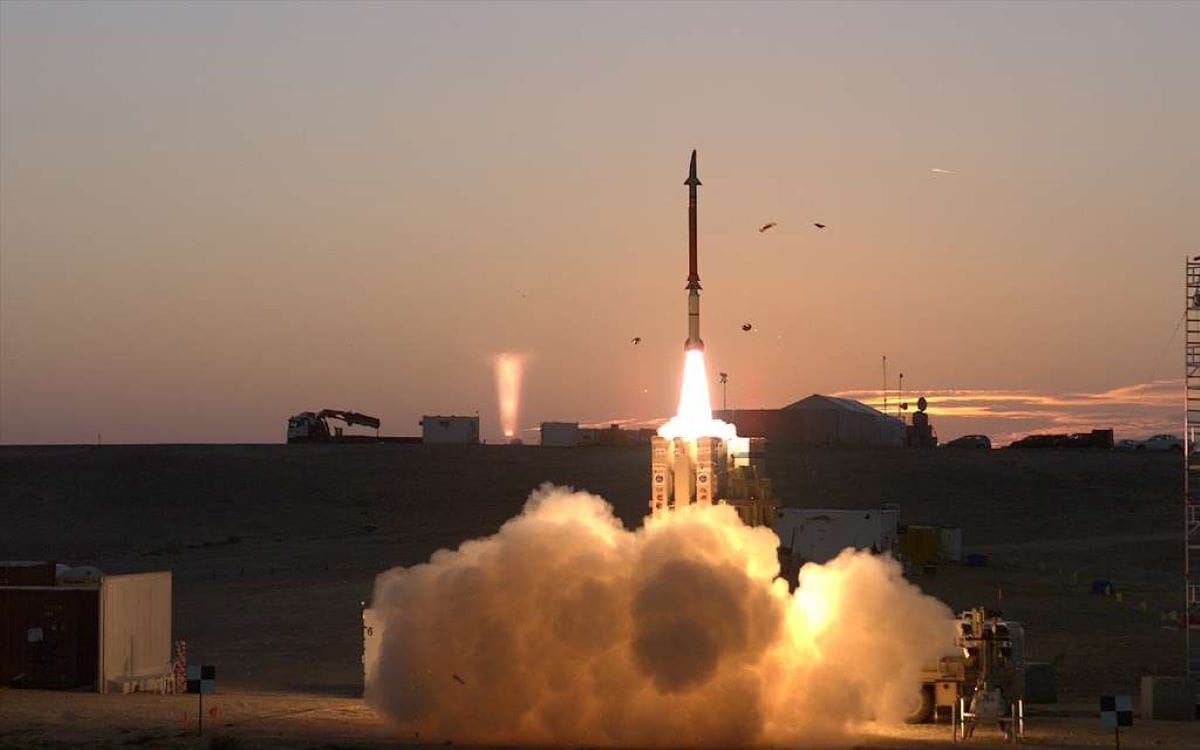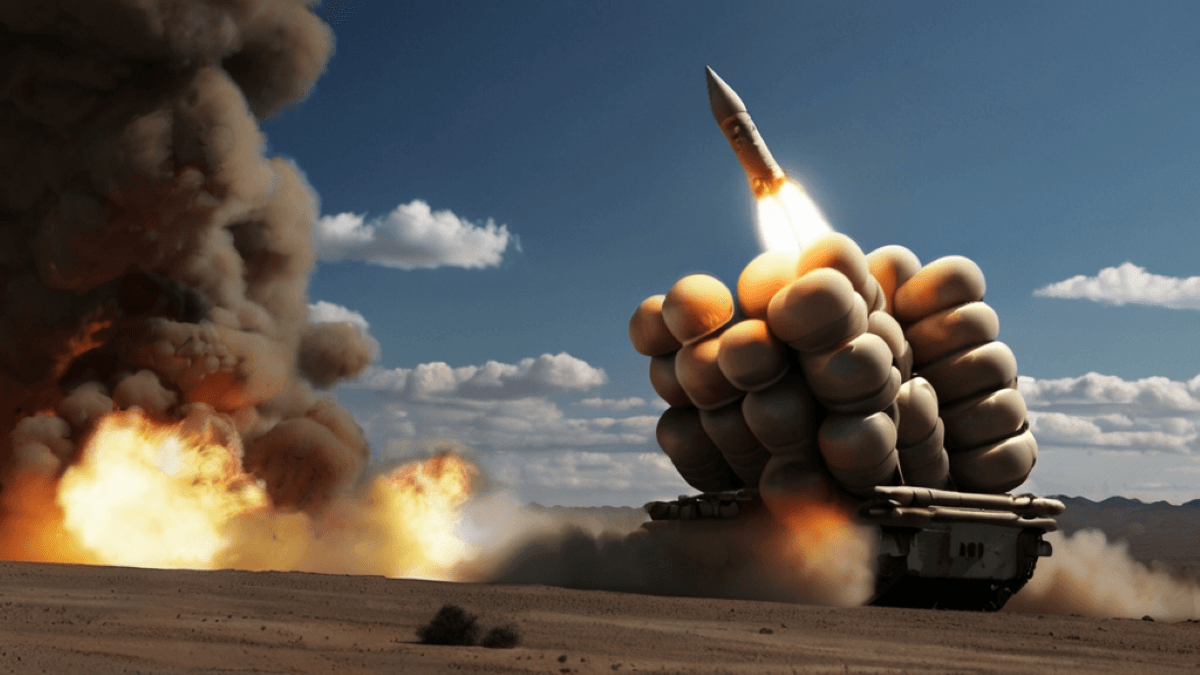In the wake of the recent exchange of hostilities between Iran and Israel, shock waves have reverberated across the Middle East and beyond, signaling a profound escalation in an already volatile region. The unprecedented direct attack launched by Iran against Israel has not only ignited fears of a broader conflict but has also elicited condemnation from leaders worldwide.
In this article, we delve into the events preceding the attack, seeking to unravel the complex web of animosity between Iran and Israel and examining the potential ramifications of this provocative action.

Background of the Conflict: Understanding Provocation and Retaliation
The recent escalation of tensions between Iran and Israel finds its roots in a series of events marked by acts of provocation and retaliation, each contributing to the deepening animosity between the two nations.
The genesis of Iran’s attack on Israel can be traced back to a deadly strike on its consulate in Damascus, the capital of Syria. Although Israel did not officially claim responsibility for the airstrike, Iran swiftly attributed it to Israeli forces, viewing the attack as a direct violation of its sovereignty. This perceived provocation prompted Iran to vow retaliation, signaling a swift and forceful response to what it considered an affront to its territorial integrity.
In retaliation, Iran launched a barrage of over 300 drones and missiles targeting Israeli territory. Despite Israel’s successful interception of the majority of these incoming projectiles, the attack heightened anxieties about the potential for further violence and destabilization in the region. This direct assault on Israeli soil marked a significant escalation in the ongoing conflict between the two nations, exacerbating already strained relations.
The cycle of provocation and retaliation underscores the precarious nature of the relationship between Iran and Israel, characterized by deep-seated mistrust and longstanding animosity. Each act of aggression serves to inflame tensions further, perpetuating a cycle of violence with far-reaching implications for regional stability and global security.
As the conflict continues to escalate, it becomes increasingly imperative for both Iran and Israel to seek diplomatic avenues for de-escalation and conflict resolution. Failure to do so risks perpetuating a cycle of violence with potentially catastrophic consequences for the entire Middle East region and beyond.
Decades of Enmity: Understanding the Historical Roots
The enmity between Iran and Israel traces back decades, rooted in historical and ideological differences that have shaped their relationship over time.
Before the 1979 Islamic revolution in Iran, the two nations maintained diplomatic ties. However, the revolution marked a significant turning point, ushering in a regime vehemently opposed to Israel’s existence. The newly established leadership in Iran viewed Israel as an illegitimate entity, sparking a fundamental shift in their diplomatic relations.
Supreme Leader Ayatollah Ali Khamenei and other Iranian leaders have consistently espoused anti-Israel rhetoric, openly calling for the eradication of the state. This uncompromising stance has further fuelled tensions and contributed to the deep-seated animosity between the two nations.
The ideological divide, coupled with historical grievances, has perpetuated a cycle of hostility and mistrust, shaping the dynamics of Iran-Israel relations for decades. Despite occasional periods of relative calm, the underlying tensions remain unresolved, posing ongoing challenges to regional stability and global security.
Proxy Warfare and Regional Tensions: Unraveling the Complex Dynamics
The enmity between Iran and Israel transcends direct confrontation, often manifesting in proxy warfare through support for allied groups across the Middle East.
Iran’s strategy involves backing militant organizations such as Hezbollah in Lebanon and Hamas in Gaza, leveraging these proxies to challenge Israel’s security and regional influence. Hezbollah, a Shiite Islamist group based in Lebanon, has received substantial military and financial support from Iran since its inception in the 1980s. Hezbollah’s armed wing has engaged in conflicts with Israel, including the 2006 Lebanon War, further escalating tensions between Iran and Israel.
Similarly, Hamas, an Islamist organization controlling the Gaza Strip, has enjoyed political and material support from Iran. Hamas’s militant activities, including rocket attacks and border clashes with Israel, have perpetuated the cycle of violence and deepened the animosity between the two adversaries.
The ongoing war in Gaza, sparked by Hamas’s aggression against Israeli communities, serves as a focal point of the proxy conflict between Iran and Israel. Iran’s arming and funding of Hamas contribute to the intensification of hostilities, exacerbating regional tensions and undermining prospects for peace.
Moreover, Iran’s support for militant proxies not only challenges Israel’s security but also destabilizes the broader Middle East region. The proxy warfare strategy pursued by Iran fosters insecurity and perpetuates conflict dynamics, hindering efforts to achieve stability and reconciliation.
In conclusion, the utilization of proxy warfare by Iran in its rivalry with Israel underscores the complexity of regional tensions in the Middle East. As long as militant proxies remain active and receive support from external actors like Iran, the prospect of lasting peace and stability in the region remains elusive. Efforts to address the root causes of proxy conflicts and promote dialogue are imperative to mitigate tensions and pave the way for constructive engagement among all stakeholders.
To learn more about ongoing conflicts in the Middle East, please read…
Military Capabilities and Nuclear Concerns: A Critical Component of Enmity
The longstanding enmity between Iran and Israel is also deeply influenced by their respective military capabilities and nuclear concerns.
Despite Iran’s significant geographical and demographic advantage over Israel, its military prowess falls short in comparison. Israel boasts one of the most advanced air forces globally, equipped with state-of-the-art technology and strategic capabilities. This military superiority has played a crucial role in shaping the balance of power in the region, influencing Iran’s strategic calculations and approach towards Israel.
Moreover, Israel maintains a policy of deliberate ambiguity regarding its nuclear arsenal, neither confirming nor denying its existence. This opacity surrounding Israel’s nuclear capabilities adds a layer of complexity to the conflict, fuelling speculation and concerns among neighbouring countries, including Iran.
In contrast, Iran has consistently denied possessing nuclear weapons, insisting that its nuclear program is purely for peaceful purposes, such as energy production and medical research. However, Iran’s nuclear activities, particularly its enrichment activities, have been subject to intense scrutiny and suspicion from the international community, including Israel.
The perceived nuclear threat posed by Iran, coupled with its military ambitions and regional influence, has heightened tensions and deepened the enmity between the two nations. As both countries continue to navigate the complex geopolitical landscape of the Middle East, their military capabilities and nuclear aspirations remain central to the dynamics of their conflict.
Signaling and Consequences
Iran’s recent attack on Israel serves as a stark reminder of its military reach and willingness to challenge perceived threats. While the attack was calibrated to avoid significant casualties, it underscores Iran’s intent to assert itself in the region. However, it also risks further escalation and international condemnation, highlighting the precarious nature of Middle Eastern geopolitics.
International Response
Leaders from various countries have voiced their concerns and called for restraint to prevent the situation from spiraling out of control. US President Joe Biden, along with UK Prime Minister Rishi Sunak, condemned Iran’s actions and emphasized the need for de-escalation. Efforts are underway to explore diplomatic solutions and strengthen economic and political sanctions against Iran.
Implications for the Region
The ongoing conflict has raised alarms about the stability of the Middle East, particularly in light of the ongoing war in Gaza. The exchange of attacks between Iran and Israel has exacerbated existing tensions and threatens to further destabilize the region. With the risk of civilian casualties mounting, there is an urgent need for dialogue and diplomacy to prevent further escalation.
Global Response and Diplomatic Efforts
Countries around the world are closely monitoring the situation and engaging in diplomatic efforts to defuse tensions. The United Nations and other international bodies are urging all parties to exercise restraint and seek peaceful resolutions to their differences. Calls for dialogue and mediation have intensified as the specter of full-scale war looms large.
Conclusion
The recent exchange of hostilities between Iran and Israel underscores the fragility of peace in the Middle East and the urgent need for diplomatic solutions. As the international community works to de-escalate tensions and prevent further violence, the world watches with apprehension, hoping for a swift resolution to the crisis before it spirals out of control.


Leave a Reply